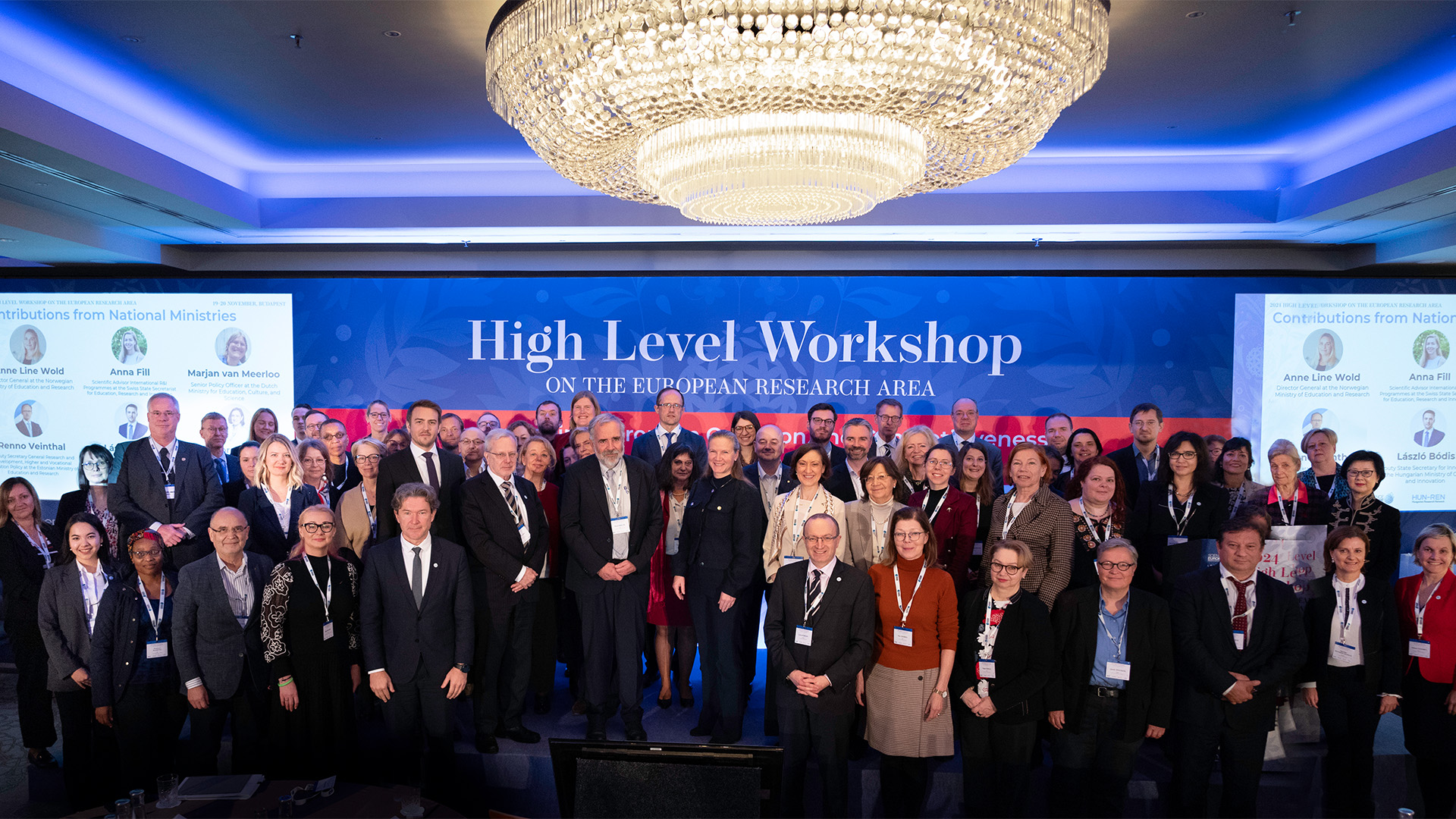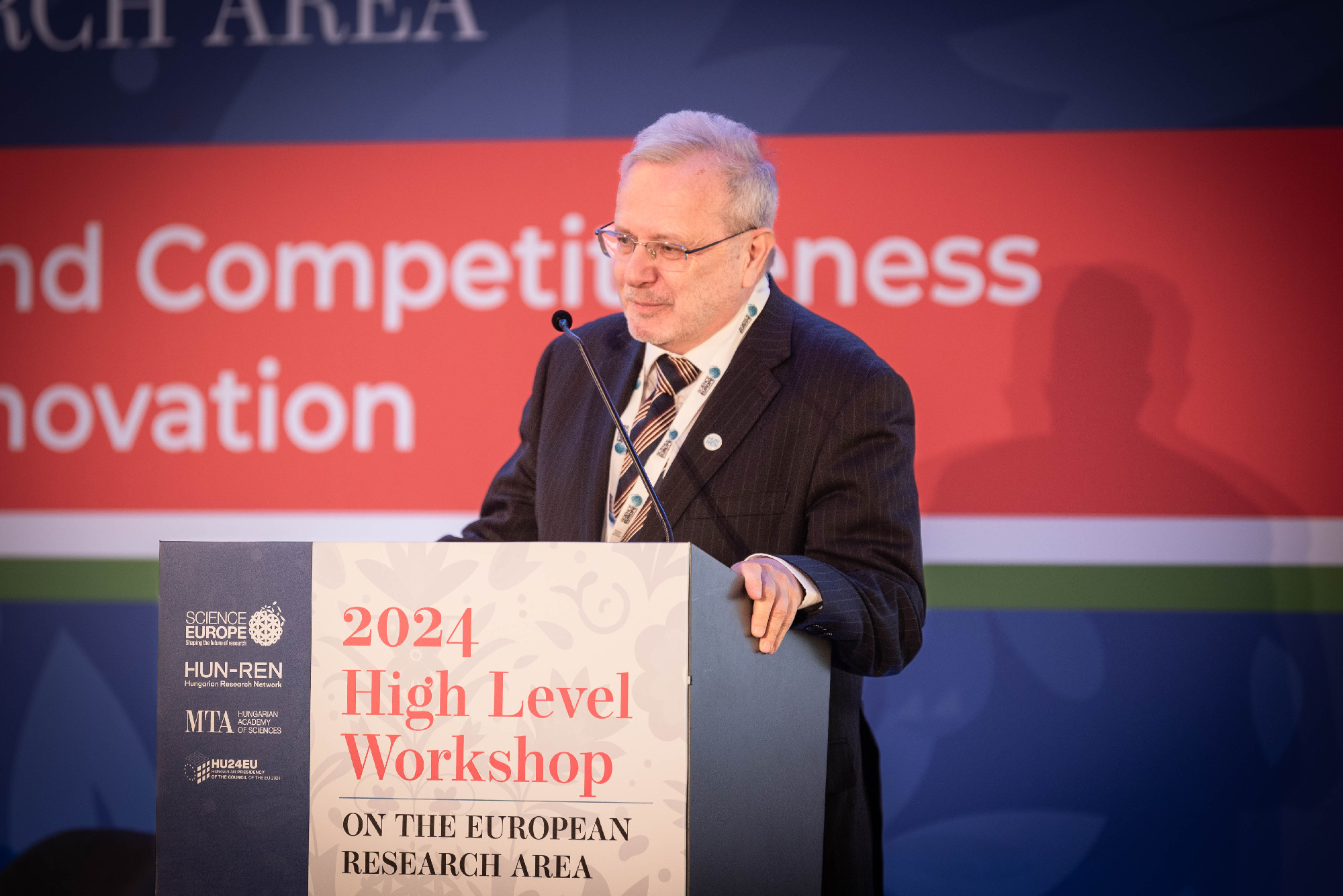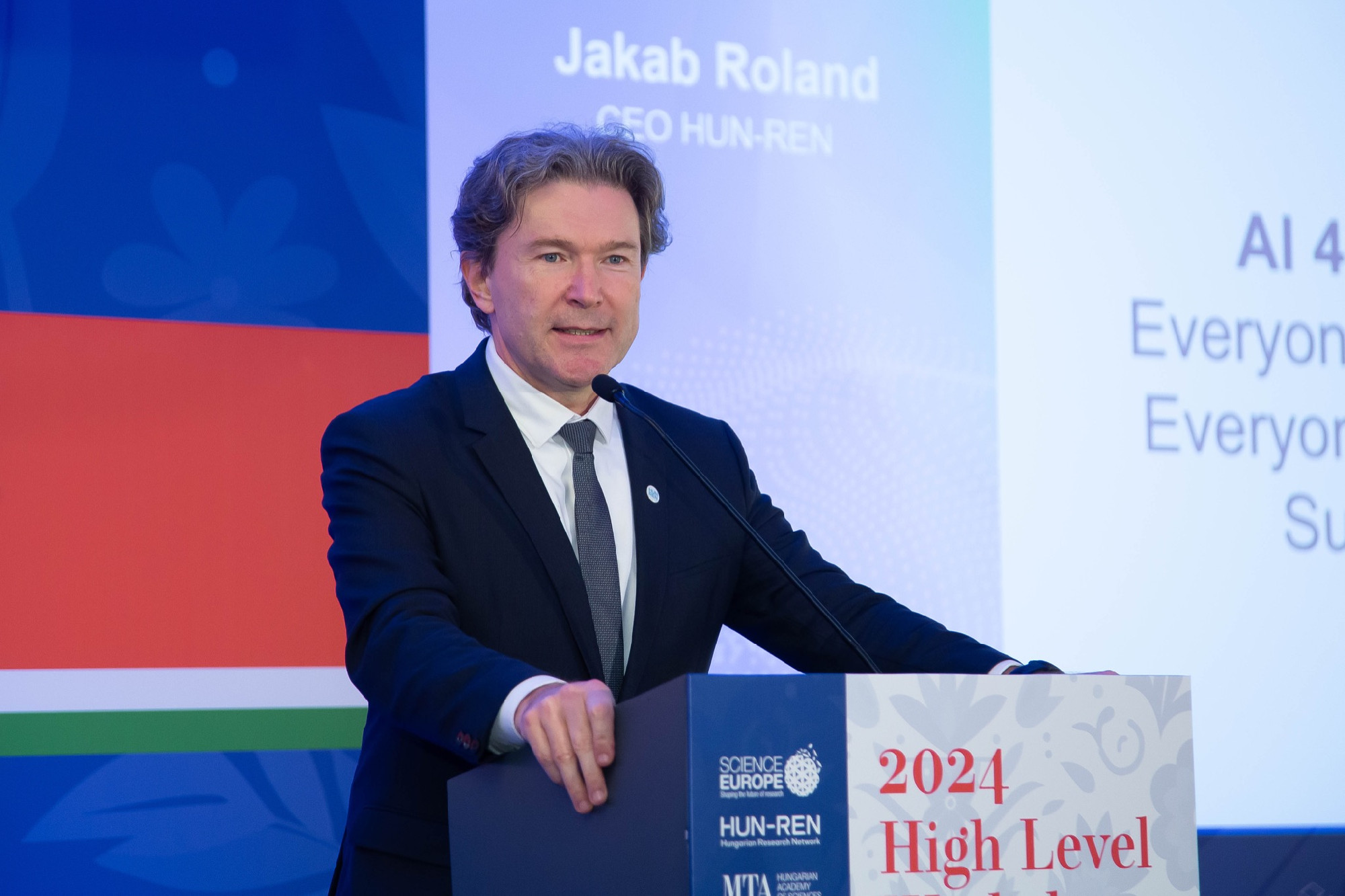"Make Europe Great Again in Science, Technology, and Innovation"
Leaders of research organisations gathered in Budapest to discuss Europe’s competitiveness and the strengthening of research cohesion. This year, HUN-REN and the Hungarian Academy of Sciences (HAS) hosted Science Europe’s annual High Level Workshop. Speaking at the event, which focused on the European Research Area (ERA), Balázs Gulyás, President of the renewing HUN-REN, emphasised the importance of talented researchers, new ideas, and innovative funding models to boost the competitiveness of European research.
In the third week of November, Budapest became the global capital of science. The Science Europe High Level Workshop brought together leaders of research funding and performing organisations from 29 European countries, along with policymakers and academics. Meanwhile, the World Science Forum provided a platform for participants in science and the beneficiaries of its results to connect at various venues across the city. Later in the week, Hungary's scientific community showcased its achievements at the Science Expo, held at the Museum of Fine Arts, offering visitors the opportunity to engage with Hungarian researchers and their latest work.

The significance of the Science Europe Workshop in Budapest, a side event of the current Hungarian EU Presidency, lies in its timing: it was held when the role of research and innovation in strengthening European competitiveness was a key focus of EU policymaking, following the Draghi Report and ahead of negotiations on the funding structure of the next EU Research Framework Programme. The two-day meeting in Budapest aimed to promote Europe's competitiveness and discuss specific policies that could be implemented through research and innovation.
Balázs Gulyás, President of HUN-REN, expressed that the network aims to become the flagship of Hungary's innovation ecosystem and one of the leading research networks in Europe. He also addressed the global phenomenon of brain drain over recent decades, noting that while it has brought several positive outcomes, Europe has been its primary victim—a situation that needs to be changed urgently.

"Retaining and attracting talent is essential for Europe's competitiveness, both economically and scientifically," emphasised the President of HUN-REN. "We need to keep our best researchers while also attracting the world's top talent to regain the position we've lost in scientific progress, innovation, and technological advantage," Balázs Gulyás highlighted.
The second pillar of competitiveness is the concept, the idea, born from the creativity of experimental researchers. However, ideas require imaginative vision, and creative researchers need academic freedom, according to the head of Hungary's national research network. Europe can maintain its cutting-edge advantage in scientific research and technology only by fostering this triad.
According to Balázs Gulyás, the third pillar of competitiveness is funding. However, the scientific ecosystem requires not only financial but also legal and structural support, both from the Hungarian Government and at the EU level. "In such a supportive environment, Europe can become great again in science, technology, and innovation," he added.
Speaking about Science Europe's annual event, Professor László Kollár, Secretary-General of the Hungarian Academy of Sciences, highlighted its particular significance this year for bringing together those driving scientific progress and shaping science policy. "Such meetings are essential for defining research directions that align with societal needs. As we stand on the brink of an unprecedented technological transformation, particularly with the rise of AI, the relationship between science and policy has never been more critical," added the HAS Secretary-General.
Mari Sundli Tveit, President of Science Europe and CEO of the Research Council of Norway, expressed anticipation for proposals aimed at bridging regional disparities in Europe, establishing collaborative frameworks based on reciprocity that promote knowledge exchange, safeguarding academic freedom and autonomy, and responsibly harnessing the transformative potential of AI. She added that these elements are essential for Europe to establish itself as a global leader in innovation and scientific excellence.
In his speech, Roland Jakab, CEO of HUN-REN, highlighted the role of AI in science. He pointed out that this year's Nobel Prizes have demonstrated the indispensability of AI, as it enables the creation of value that AI alone cannot generate. According to Roland Jakab, these new tools not only accelerate research activities but also open up new opportunities and capabilities for science. 'This insight has also been recognised by HUN-REN researchers, for whom we have developed the AI 4 Science service package to support their work with state-of-the-art AI tools.'

Fotó: Andras Mayer
At the workshop attended by high-level leaders, several speakers highlighted the transformative potential of AI and discussed the policy and infrastructure conditions necessary for its responsible use to advance scientific excellence.
The two-day event also focused on strengthening the participation of EU Member States in research and innovation, increasing the impact of research, and addressing regional and national research disparities across Europe. Participants agreed on the necessity of boosting the global competitiveness of European research, with the protection of academic freedom and independence as a fundamental component. They affirmed their collective capacity to act cohesively and with a unified mindset to enhance competitiveness.

